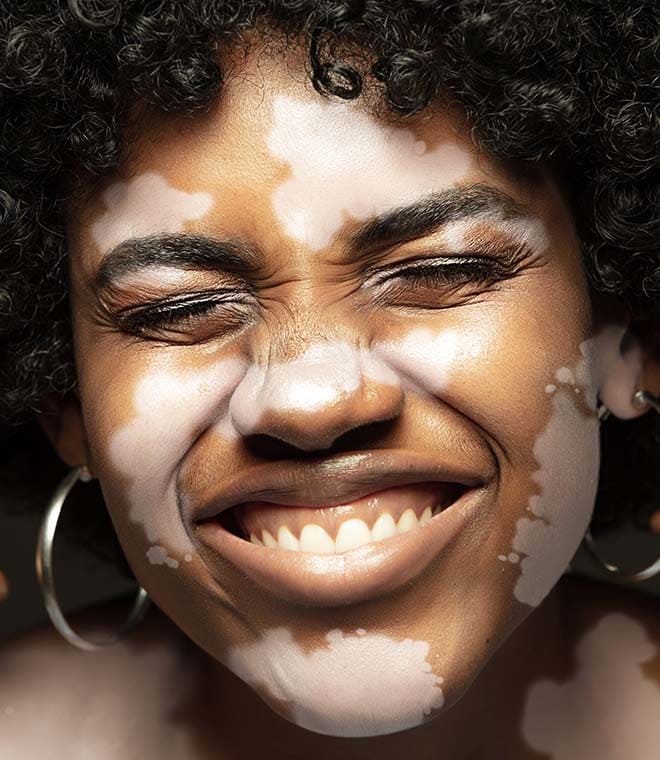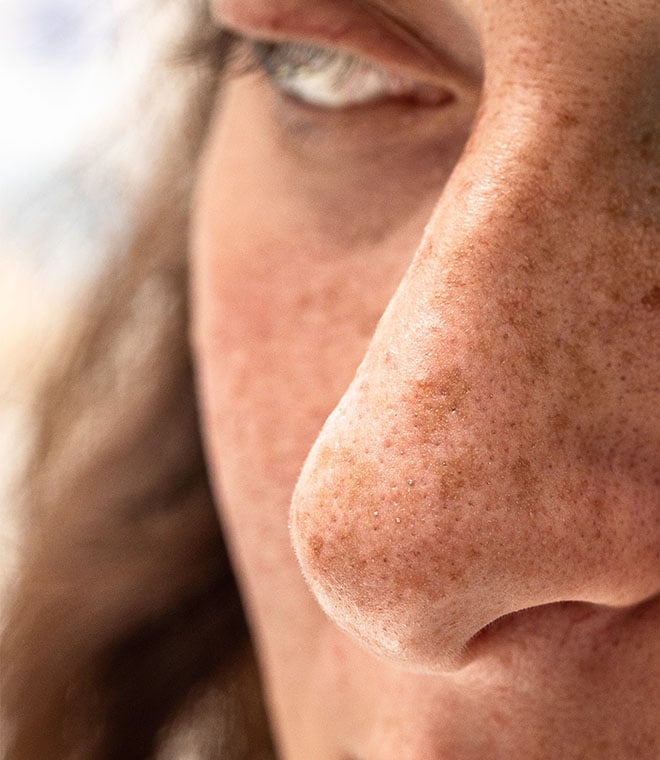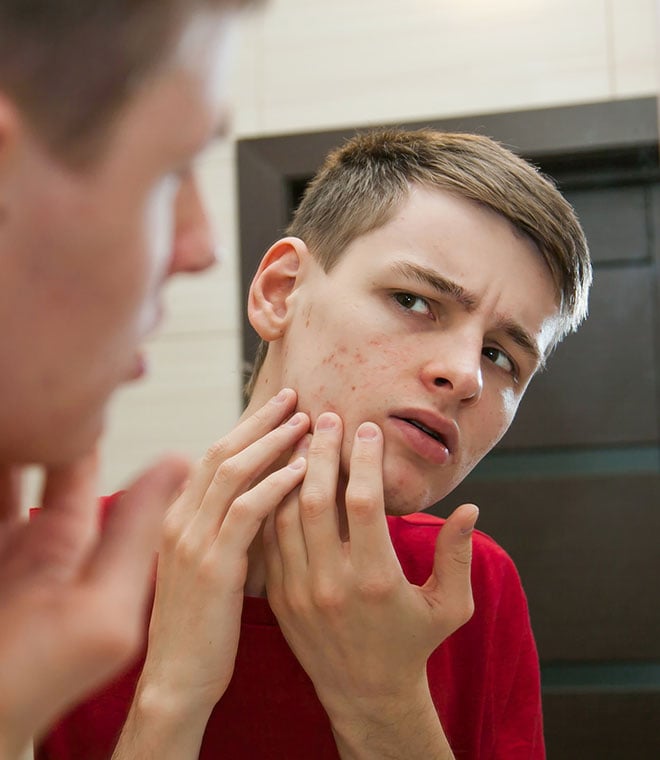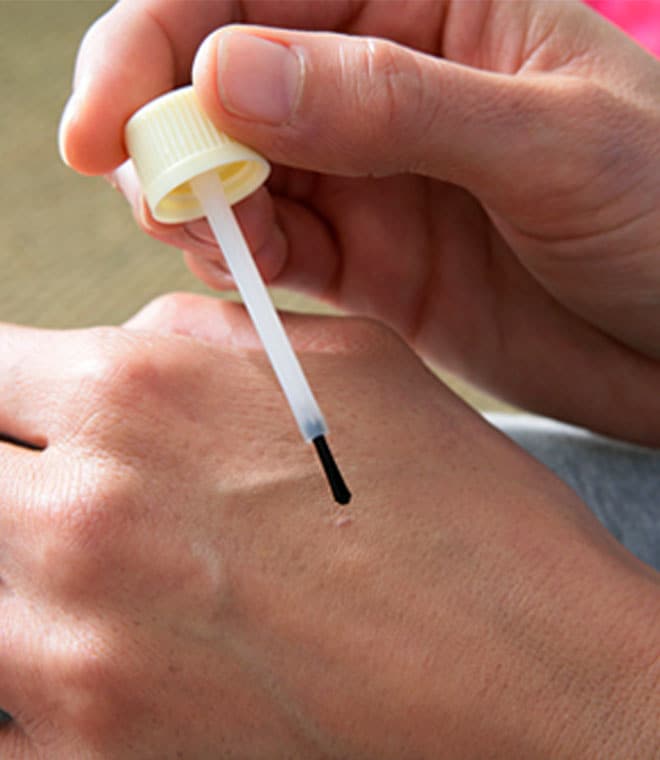Health
What causes acne?
By Jenilee Matz, MPH Sep 11, 2023 • 7 min
Acne is the most common skin condition in the U.S. Nearly 50 million Americans are affected by acne each year. But what causes blemishes to pop up on your skin? Here, you'll learn about the causes of acne.
How do pimples form?
Pimples on the face and acne on the body develop when hair follicles under the skin become clogged. Hair follicles connect to sebaceous glands, which make sebum, an oil that lubricates the hair and skin. Normally, sebum travels up the follicles and out onto the surface of your skin. But, when your body makes too much sebum, it can mix with dead skin cells and clog hair follicles. This creates an ideal environment for bacteria to grow. This causes inflammation and pimples to form.
Why acne occurs
Acne may be triggered by:
- Hormonal changes. During puberty, levels of certain hormones, called androgens, increase in males and females. This causes the sebaceous glands on the skin to get bigger and produce more sebum, which can lead to breakouts. Fluctuating hormone levels can also cause acne in adults. Women may experience acne around their periods, during pregnancy or menopause, or after starting or stopping birth control pills.
- Hair care and skin care products. Using oil-based cosmetics or other harsh ingredients in hair care and skin care products can cause breakouts. Choose oil-free products or ones labeled as "noncomedogenic" or "won't clog pores."
- Friction or pressure on your skin from items such as phones, helmets, straps or backpacks.
- Family history. Acne tends to run in some families. You may be more likely to have acne in adulthood if you have a relative who also has it.
- Stress can cause acne to flare up. The body makes more androgens in response to stress, which can bring on blemishes.
- Certain foods. Some studies have found that eating refined carbohydrates or drinking cow's milk may worsen acne in some people. Further research is needed to understand the possible link between diet and acne, though.
What hormones cause acne?
An increase in androgens during puberty can cause acne. In addition, fluctuating levels of other hormones later in life can also lead to breakouts. Women may experience acne during pregnancy or menopause, due to fluctuating hormones.
What causes adult acne?
While acne is most common in teenagers, it isn't uncommon for people to continue to have acne into adulthood. Some people even get acne for the first time as an adult. Women seem to experience adult acne more often than men do. Changing hormone levels, a family history, stress, hair and skin products and certain foods may trigger breakouts in adults. Acne may also be a side effect of a medication or a symptom of an underlying health condition.
What causes whiteheads?
Whiteheads are a type of noninflammatory acne that causes tiny white or flesh-colored bumps on the skin. They occur when hair follicles become filled with debris and clog up.
What causes cystic acne?
There are several different types of acne. Cystic acne is a more severe form of acne that's marked by painful and swollen lesions under the skin that contain pus. This type of acne occurs when excess oil and dead skin cells build up deep within hair follicles.
What causes back acne?
Acne on your back has the same cause as pimples on your face or other areas of your body. There are hair follicles on your back. When the body makes too much sebum, it can mix with dead skin cells and clog hair follicles. This can cause acne to form.
What causes acne on the buttocks?
Acne can occur on any area of your body where there are hair follicles, including your buttocks. Hair follicles can become clogged with excess oil and dead skin cells, which can lead to breakouts.
What foods cause acne?
The role of diet in acne isn't yet fully understood. Limited research shows that consuming cow's milk or a high glycemic diet (one that's high in sugar and other refined carbohydrates) may contribute to acne. But, at this time, there is no strong evidence showing that any foods increase the chance of acne.
Does dairy cause acne?
Some studies show a connection between cow's milk and acne. Some researchers believe this is because cow's milk contains hormones, which can cause inflammation throughout the body. This inflammation may clog pores and lead to breakouts. However, more research is needed to understand this possible link. Note that no studies have found a strong association between consuming yogurt or cheese and acne.
Does sugar cause acne?
Some research shows that consuming diets high in refined sugars may worsen acne in some people. However, there is no strong evidence that any foods, including sugar, increase the risk of developing acne.
Can birth control cause acne?
Certain types of intrauterine devices (IUDs), injectable forms of birth control and oral birth control pills may worsen acne. However, some combination birth control pills are actually used to treat moderate to severe acne in women. The hormone estrogen helps to balance out androgen, which may reduce breakouts.
If you have mild acne, consider trying an over-the-counter product to clear your skin. If it doesn't work or if you have more moderate to severe acne, consider seeing a dermatologist. They can get to the root cause of your acne and create a treatment plan to help clear up your skin.
Clinically reviewed and updated by Julie McDaniel, MSN, RN, CRNI September 2023.
Sources:
- https://www.uptodate.com/contents/acne-vulgaris-management-of-moderate-to-severe-acne?topicRef=42&source=see_link
- https://www.uptodate.com/contents/acne-beyond-the-basics
- https://www.aad.org/public/diseases/acne/derm-treat/severe-acne
- https://www.aad.org/public/diseases/acne/really-acne/adult-acne
- https://www.aad.org/media/stats-numbers
- https://www.mayoclinic.org/diseases-conditions/acne/symptoms-causes/syc-20368047
- https://www.aad.org/public/diseases/acne/causes/diet
- https://www.mayoclinic.org/diseases-conditions/acne/expert-answers/birth-control-pills-for-acne/faq-20057892
- https://my.clevelandclinic.org/health/diseases/21737-cystic-acne
- https://www.mayoclinichealthsystem.org/hometown-health/speaking-of-health/dont-turn-your-back-on-back-acne
- https://www.aad.org/public/diseases/acne/causes/diet
- https://health.clevelandclinic.org/best-birth-control-for-acne/
- https://medlineplus.gov/ency/article/000873.htm



